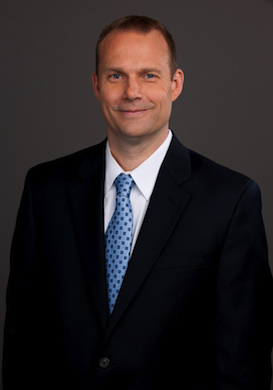Analyst Adrian Healey on preparing for EURO 2012 soccer coverage

Since joining ESPN in 2003, Adrian Healey’s role as English-language soccer play-by-play commentator has progressively increased to where he has now become one of the company’s signature voices for the sport in and outside the United States.
Healey was a commentator on ESPN’s Emmy Award-winning presentation of the 2010 FIFA World Cup South Africa, the critically acclaimed 2011 FIFA Women’s World Cup in Germany, and was named the primary English-language voice for Major League Soccer on ESPN in 2011.
Today, it was announced Healey will join a team of three English-language voices who will provide match commentaries for ESPN’s presentation of the UEFA European Football Championship 2012™.
Before the announcement, Healey sat down with Front Row to share some of his thoughts about the quadrennial tournament and his preparations to call the matches.
On what he’s most looking forward to on EURO 2012
The quality of play. EURO 2008 was a feast of absorbing soccer, arguably the best international tournament we’ve seen in a generation. With so many of the key European teams back and as strong as ever, there is a wide open feel to this tournament which will result in some brilliant drama and entertainment.
On the key difference between the European Football Championship and FIFA World Cup
For me, one key difference is the opportunity to win it. Though there are heavy favorites, the smaller field — 16 teams versus 32 in a World Cup — means that the overall quality is higher and there are avenues available to make a deep run in the tournament. Denmark in 1992 and Greece in 2004 provide recent examples of dark horses winning it all. You can sit down and construct a fairly solid case for more than half of the teams winning it, which you can never do with a World Cup.
On his preparations to commentate on such marquee tournaments
It is a continual and ongoing process. I am lucky to be involved with some of Europe’s major leagues week in week out, calling games for ESPN networks around the world. I am already familiar with a lot of the players. In the last month or so before a tournament, my preparation becomes an intense and accelerated process involving national teams’ rosters, histories, statistics and storylines and really immersing myself in the matches I will be calling. Actually, getting to call the games is like the icing on the cake.
On calling games on-site versus from Bristol studio
[Editor’s note: Healey will call group stage matches from Bristol before traveling to Poland-Ukraine for on-site commentary in the knockout rounds.]
Calling games in studio versus from the stadium is essentially the same job put performed in very different circumstances. There are actually some advantages to calling matches from the studio — you only see the exact same pictures as the viewer. As such, you can tailor your comments to mirror exactly what the viewer is experiencing. Also, there are issues such as loud or blaring PA announcements or deafening Vuvuzelas — there were times in South Africa where you could barely hear yourself think.
On the whole though, any commentator would tell you there is no substitute for “being there.” Being able to see the whole field is particularly helpful, as there are nuances to each game which are tough to pick up looking at the screen. Being able to absorb the atmosphere, the build-up to the game, the city and the stadium are also huge factors when it comes to commentating. When you are there, it is somehow easier to find the right words to bring the viewers there with you.







